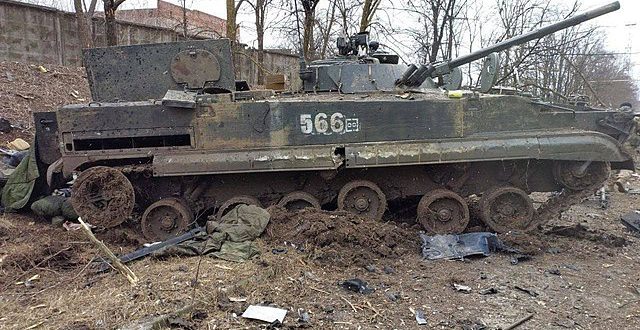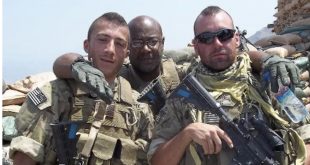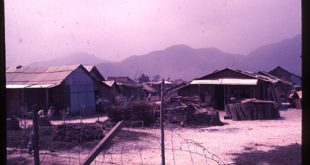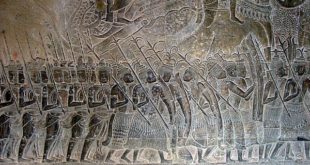At the Petergof cemetery in St. Petersburg, five fresh graves appeared this summer, away from the other graves: all of them the same, with wooden crosses, black plates with names in gold and the dates of birth and death, framed photographs behind glass with a black ribbon pulled over them. The graves are distinguished by the abundance of fresh flowers and wreaths, some of them in the colors of the Russian flag.
Five men are buried here: Sergei Shalunov died in the war with Ukraine on June 17 (his death was officially reported by Leningrad region Governor Aleksandr Drozdenko at the end of June), Private Aleksandr Gerasimov died on August 14 (his death was confirmed by St. Petersburg Governor Aleksandr Beglov at the end of August), another a portrait on a nearby cross is of a young man in an officer’s uniform with lieutenant’s epaulettes (RFE/RL could not find official condolences published in the media or on social media).
As for the other two graves, one belongs to Aleksandr Romanovsky, who was convicted of murder with robbery and was a native of Chudov, in the Novgorod region. Romanovsky’s grave was visited by Yevgeny Prigozhin, a close associate of Russian President Vladimir Putin who is believed to control the Vagner private paramilitary group, which has sent men to fight in Ukraine.
A photo of Prigozhin was published by military commander Vladlen Tatarsky. Later, Prigozhin, through the press service of his Konkord company, said that he had come specially to visit Romanovsky’s grave.
“I laid flowers on the grave of a man who had recently been convicted, and died on August 1, defending the interests of our Motherland from the enemy,” Prigozhin said.
Next to Romanovsky’s grave is that of another former inmate from St. Petersburg, 53-year-old Eduard Anisimov. Relatives and acquaintances of Anisimov confirmed to RFE/RL that he was serving a sentence in a St. Petersburg prison and died in Ukraine.
Emptying The Prisons
Reports began emerging of prisoners being recruited by Vagner to fight in Ukraine in July, and a video has also surfaced of what appears to be Prigozhin himself recruiting inmates to sign up.
Relatives of inmates in prisons in the St. Petersburg area told journalists that Vagner representatives came to these facilities and offered inmates the chance to volunteer to go to war. In return, they were promised 200,000 rubles ($3,300) and freedom if they fought in the conflict for six months. On the night of July 6, according to Istories, the first group of about 40 inmates was taken out of Yablonevka, one of the prisons. On July 25, it reported the death of at least three of them.
Prigozhin has rejected the reports, reiterating his long-held claims that he has nothing to do with the shadowy Vagner Group, which Western governments say the Kremlin has been using in conflicts in Ukraine, Libya, Syria, Sudan, Mozambique, and the Central African Republic.
On September 18, six members of the president’s Human Rights Council appealed to Prosecutor-General Igor Krasnov to clarify on what basis prisoners with unfinished terms are being sent to Ukraine to participate in the “special military operation,” as the Kremlin insists on calling its invasion of Ukraine. The request says that information about sending prisoners into combat was even reported by state media, and that some of the prisoners recruited had been convicted of serious crimes.
Human rights activists say that a prisoner who has not served his full term can be only released either on the basis of a presidential pardon, an amnesty announced by the State Duma, or a court decision on parole.
‘Almost Free’
Relatives and acquaintances of Anisimov confirmed to RFE/RL that he was in prison, and was sent to fight in Ukraine by a private military contractor (PMC). A close relative, who wished to remain anonymous for fear of retribution, learned that he was going to Ukraine from a telephone conversation that took place “on the day when they were going to send him there.”
“He said that PMC representatives came. They promised mountains of gold, they said that in six months he would be able to get out of there. They also promised financial assistance,” the relative said. “The prisoners had an interview. He agreed…since he was a military man. And that’s all, he left.
“He didn’t say if anyone had been sent before. Perhaps it was the first stage from there. Of course, he explained [why he agreed to go to war]: The conditions behind bars are terrible, who wants to stay in jail when they tell you that [you’ve got a chance to leave]? I tried to dissuade him, but you yourself understand, he was an adult,” the relative said.
Anisimov was born and raised in Siberia, but had lived in St. Petersburg for quite some time. For several years he worked as a driver for a German company. From the materials of the criminal case, published on the website of the Federal Anti-Monopoly Service, it appears that Anisimov was detained in November 2018 on charges of selling a large amount of drugs.
Anisimov pleaded guilty. At the trial, he said that in 2017 he met people “involved in drug trafficking,” who made him an offer to sell drugs. But Anisimov did not provide their names during the trial, fearing for his own life and the lives of his relatives. In court, he suggested that the people he met were related to law enforcement agencies.
In the summer of 2020, a court in the Leningrad region sentenced Anisimov to nine years and 10 months in prison and a fine of 300,000 rubles ($4,900). In pronouncing the verdict, the court took into account the almost 20 months that he had already spent in pretrial detention, so he had a little more than eight years left to serve.
After being released to fight in Ukraine, Anisimov managed to get through to his children. During a conversation with his daughter, he said that he was already “almost free.”
“He told me that they had to prepare for 14 days. He then got in touch, but I didn’t have time to pick up the phone,” the close relative recalled, saying that Anisimov also called his sister around July 5 and told her “that he was almost free.”
Anisimov’s sister was the first to receive news of her brother’s death. The funeral took place at the cemetery in Petergof.
According to another acquaintance of Anisimov, he died in the region of Ukraine’s eastern Luhansk region, which is held by separatists, and was awarded two medals. Russian authorities have not officially reported the awarding of any medals to Anisimov, and no decrees have been published on the Kremlin website.
A close relative of Anisimov confirmed that he was given awards posthumously, but the relative did not see these awards themselves and did not know any details. He also did not know whether the family of the deceased will be paid compensation for Anisimov’s death fighting in Ukraine.
Anisimov’s ex-wife refused to talk to RFE/RL, accusing the correspondent of “spying for the SBU,” the Ukrainian Security Service, and saying that she forbade any “collection and dissemination” of information about her family’s personal life, “both current and former.”
Reported by RFE/RL
 Soldier of Fortune Magazine The Journal of Professional Adventurers
Soldier of Fortune Magazine The Journal of Professional Adventurers






